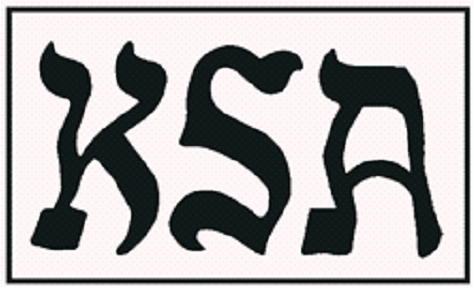 |
According to Rabbi Binyomin Lisbon of KSA Kosher, flavors or flavor enhancers are derived from hundreds of unlikely sources. Rabbi Binyomin Lisbon explains how flavors in consumer products undergo extensive testing by kosher certification agencies.
Q: How prevalent are flavor ingredients? |
Rabbi Binyomin Lisbon: Flavor ingredients can be found in some form in every aisle of the supermarket.
Q: What are some examples?
Rabbi Binyomin Lisbon: Ketchup contains a tomato flavor that will enhance the taste. Cake mixes contain an artificial vanilla flavor. The list goes on.
Q: Such as?
Rabbi Binyomin Lisbon: Flavor is added in a number of supermarket products from soap to soup. Even cigarettes contain a vanilla flavor.
Q: How does this affect the kosher consumer?
Rabbi Binyomin Lisbon: It can be frustrating when labels give no indication about the artificial and natural flavors used in the product.
Q: Why do labels not properly define these flavors?
Rabbi Binyomin Lisbon: U.S. law states that any consumer product only needs to label them as “Artificial and/or Natural Flavors.” Therefore, the assorted flavors remain unknown to the consumer.
Q: Is the manufacturer aware of what flavors were used?
Rabbi Binyomin Lisbon: Unfortunately not. The manufacturer who uses these flavors generally has no idea what ingredients were used.
Q: How will the purchaser know then?
Rabbi Binyomin Lisbon: Exactly, that’s the problem.
Q: How do kosher certification agencies alleviate this problem?
Rabbi Binyomin Lisbon: If asked, the flavor company will offer their formulations to the kosher certification agency. The agency reviews these ingredients to determine if they are kosher.
Q: How would a kosher certification agency break down the different flavor components?
Rabbi Binyomin Lisbon: Without a thorough flavor review performed by an educated expert, the agency has no way of determining what is contained in the artificial and natural flavors.
Q: How does the kosher consumer determine the status of a particular flavor?
Rabbi Binyomin Lisbon: Flavor components can be broken down into three major categories that help certification agencies define them.
Q: What flavors are definitely considered kosher?
Rabbi Binyomin Lisbon: The first is what would be called the best category, which includes artificial or natural ingredients that have always been considered kosher.
Q: What are a couple of examples in this category?
Rabbi Binyomin Lisbon: Pure cocoa powder and pure, unflavored coffee are two examples.
Q: What’s on the opposite end of the spectrum?
Rabbi Binyomin Lisbon: The worst category features flavor ingredients that are always non-kosher. Examples include civet from cats and castoreum from beavers.
Q: How about flavors that fall in the middle?
Rabbi Binyomin Lisbon: The middle category contains components that must be carefully examined due to their unknown nature. The major concerns in this category are process and source.
Q: What products are in the middle category?
Rabbi Binyomin Lisbon: Popular examples of these products are gelatin, cheese powders and grape juice.
Q: How will the food industry continue to educate consumers on kosher flavors?
Rabbi Binyomin Lisbon: Given regular inspections from flavor manufacturers and their positive relationships with certification agencies, each consumer is assured that certain flavors are kosher.
Leave a Reply